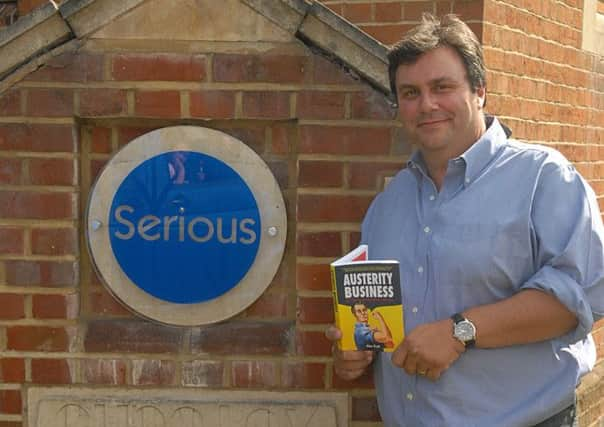Business Eye: Conquering the art of sales mastery


Selling is ubiquitous. It never sleeps.
If a right-minded psychology gets you up selling early enough and a solid grounding in the science of selling means you catch more hot prospects willing to at least glance at the mind pictures you attempt to paint for them, what can we learn about the artistry that could turn your metaphorical sales canvas into a must-have masterpiece?
The subject matter, style, colours and level of detail in the pictures you paint are a matter for you. The artistry lies solely with brush technique, which what moves prospects to emotionally connect with you and your offer.
Advertisement
Hide AdAdvertisement
Hide AdHave you ever wondered why there is so much corporate hospitality?
It is not about morale-boosting sporting soirees for the staff, but a deliberate use of the well tested reciprocation principle which compels us each to repay in kind that which someone else has done for us.
None of us likes to be left feeling indebted. The reciprocity principle however runs much deeper than most realise, understand or are able to deftly deploy in the pursuit of a sale.
For example, one extension of the basic reciprocity principle suggests that, more likely than not someone who is seen to make a concession will subconsciously compel the other person to reciprocate.
Advertisement
Hide AdAdvertisement
Hide AdSo, for example, if a young lad stopped you in the street and ask for £10 for a ticket to his school fete, you would be unlikely to buy. But consider for a moment if he were to follow up with “Well, if you don’t want to buy fete tickets at £10, how about trying our big bars of chocolate? They are only £1 each”?
Many would ‘choose’ to buy this chocolate, the reason being it has been presented as a retreat from the original £10 request and therefore demands a reciprocal concession on our part.
Now, what if the idea in the first place had always been to sell you chocolate? How much better a result would he get than had he just asked you to buy the chocolate?
The research suggests not 10% but more like 10 fold or 1000% in real money. Small changes can make a huge difference.
To paint more compelling sales pictures read ‘Influence’ by Robert Cialdini.